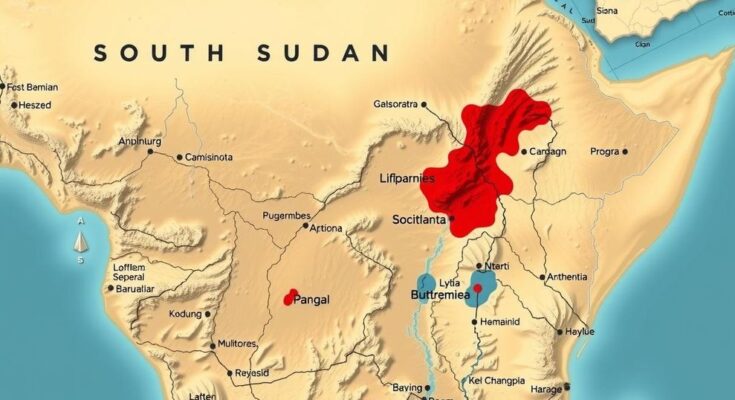South Sudan is on the verge of civil war as tensions rise following the arrest of Vice President Riek Machar’s allies. The conflict stems from ethnic divisions between the Nuer and Dinka groups. Following hostilities, including attacks on civilians and military confrontations, the already tenuous peace established by a past agreement faces significant challenges. Despite the recent resumption of oil production, the political crisis poses severe risks to the country’s stability.
South Sudan appears to be nearing a potential civil war as tensions escalate in the capital, Juba. Following the arrest of key political allies, including Petroleum Minister Puot Kang Chol and his family, Vice President Riek Machar has become increasingly isolated. Machar and Chol belong to the Nuer ethnic group, the second-largest demographic in South Sudan, which has historically been in conflict with the Dinka, the majority group led by President Salva Kiir.
The situation has deteriorated further following the seizure of Nasir, a significant town in Upper Nile State, by the White Army, a militia associated with Machar’s Nuer minority. This development occurs against the backdrop of worsening relations between Kiir and Machar after stalled negotiations on unifying ethnic militias into a national army, as mandated by the 2018 peace agreement that ended the previous civil war.
In early February, President Kiir dismissed several of Machar’s advisers, including a health minister, without the required consultation, breaching the peace pact. These actions were compounded by national troops under Kiir attacking civilians in Nasir during a UN mission. This prompted violent retaliation from armed youths who killed at least four soldiers. Subsequently, the military responded with airstrikes on Machar’s militant positions, illustrating the deteriorating security situation.
The escalation of hostilities comes just months after South Sudan resumed oil production, which is critical for generating revenue for a nation grappling with poverty. Despite these vital developments, the political climate remains unstable, raising concerns over the potential for renewed conflict in the nation.
In summary, South Sudan is at a critical juncture, facing the possibility of renewed civil war due to escalating political tensions and violence. The arrests of key allies of Vice President Riek Machar by President Salva Kiir have exacerbated ethnic divisions and undermined the fragile peace established by the 2018 agreement. Continued military confrontations and a lack of cooperation between the factions may further destabilize the country, highlighting the urgent need for diplomatic intervention and resolution.
Original Source: www.gzeromedia.com




